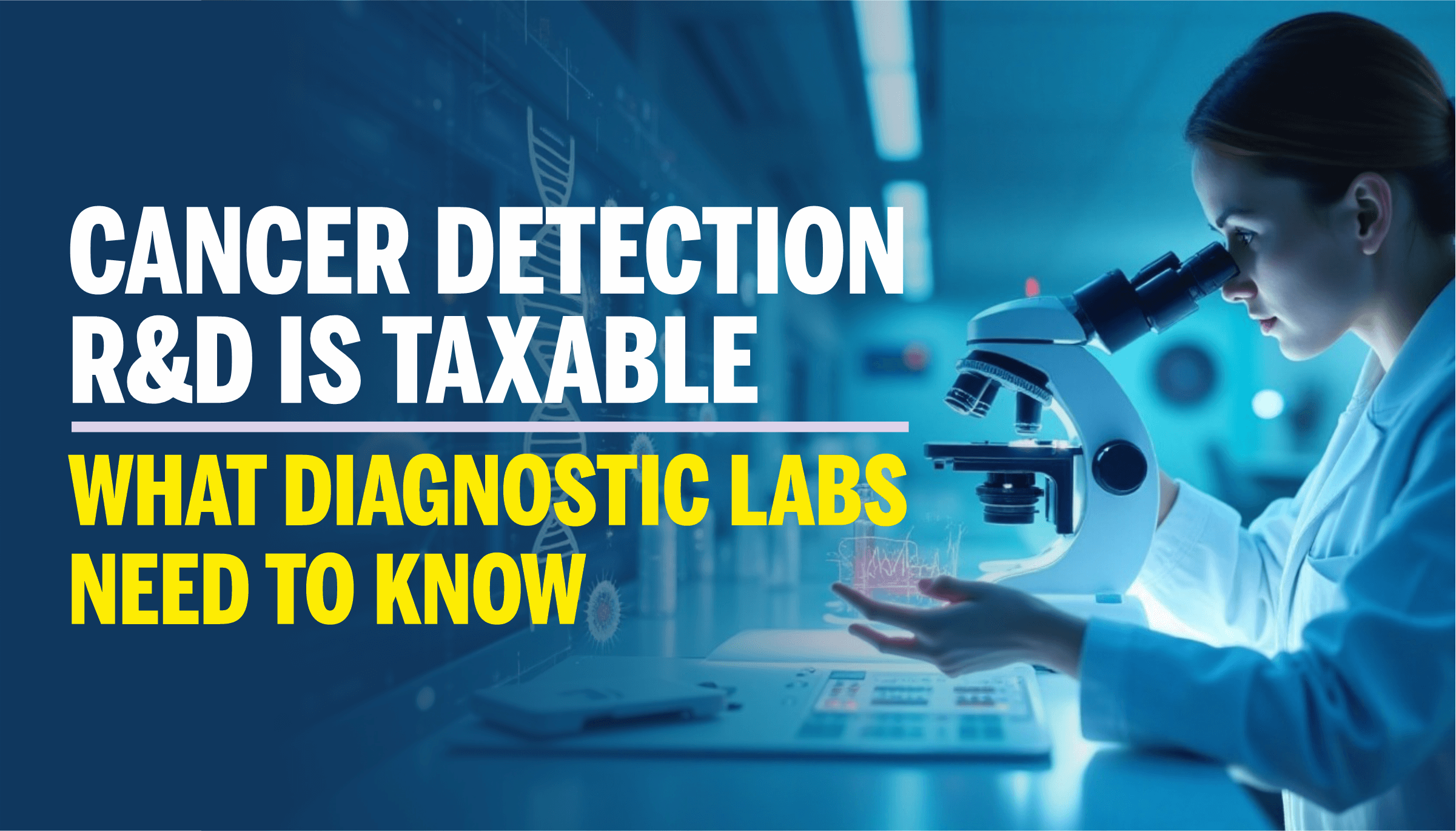GST on R&D: Cancer Diagnosis Services Denied Tax Exemption

In a landmark decision regarding GST on R&D, the Maharashtra Authority for Advance Ruling (MAAR) has held that services related to early cancer detection—which remain in the research and development phase—do not qualify as ‘healthcare services’ and are therefore taxable under GST. This ruling arose from an application by Epigeneres Biotech Pvt. Ltd., whose prognostic and diagnostic blood‐test services lacked validation from regulatory bodies such as the ICMR and CDSCO, resulting in their classification as clinical research rather than healthcare delivery.
Legal Framework: Why ‘Healthcare Services’ Must Be Certified
Under Entry 74 of Notification No. 12/2017-Central Tax (Rate), GST exempts “services by way of diagnosis, treatment or care” provided by a clinical establishment or “authorized medical practitioner.” However, courts and AARs have consistently ruled that this exemption applies only to services that are:
-
Validated or licensed by bodies like ICMR, CDSCO, or state health authorities, and
-
Commercially offered to patients as part of an established healthcare facility.
In the absence of such certifications, the supply—even if medically promising—is treated as R&D and attracts 18% GST.
Case in Point: Epigeneres Biotech
MAAR observed that Epigeneres’ algorithm-based cancer test was “still in its developmental stage” and lacked any CDSCO or ICMR approval. Absent these, the service falls squarely under clinical research and development, not healthcare, and thus does not enjoy the GST exemption.
Similar Rulings Across India Regarding GST On R&D
-
Matrix Imaging Solutions (Karnataka AAR): In KAR ADRG 105/2019, Karnataka’s AAR ruled that diagnostic imaging services provided by a registered clinical establishment to hospitals were exempt under Entry 74, since the services were patient‐facing and carried out under a valid contract with government hospitals. (Studycafe)
-
Sterling Accuris Wellness (Gujarat AAR): Pathology and diagnostic tests supplied to a researcher (rather than directly to a patient) were held taxable. The AAR clarified that services rendered solely for research purposes do not qualify as healthcare services under the exemption notification. (Taxscan)
-
IIBAT (Tamil Nadu AAR): R&D services for the agro-chemical sector—despite GLP accreditation—were found outside the scope of Notification 04/2019 (which applies only to pharmaceutical R&D), and thus attracted GST. (SAG Infotech Official Blog)
Strategic Takeaway: Certifications Are Non-Negotiable
For labs and startups innovating in areas like genome sequencing, biomarker discovery, or AI-driven diagnostics, this ruling is a stark reminder that GST on R&D can materially affect pricing, cash flow, and investor returns. To qualify for an exemption, your service must be:
-
Approved or certified by ICMR, CDSCO, or equivalent;
-
Commercially delivered to patients through an accredited clinical setup; and
-
Distinguished from purely experimental or clinical‐trial phases.
Skipping or delaying certification may invite not only an 18% GST hit, but also demand notices and litigation.
A Broader Policy Question: Should “GST on R&D” Exist?
India’s push for breakthroughs in personalized medicine and precision oncology hinges on encouraging high-risk, high-reward research. Yet when early-stage diagnostics are taxed like any other service, could we be slowing the pace of life-saving innovation? Other jurisdictions have adopted special R&D tax credits or exemptions to spur scientific advancement—should India consider a phased or sector-specific GST exemption for certified diagnostic R&D, especially when aligned with national health priorities?
